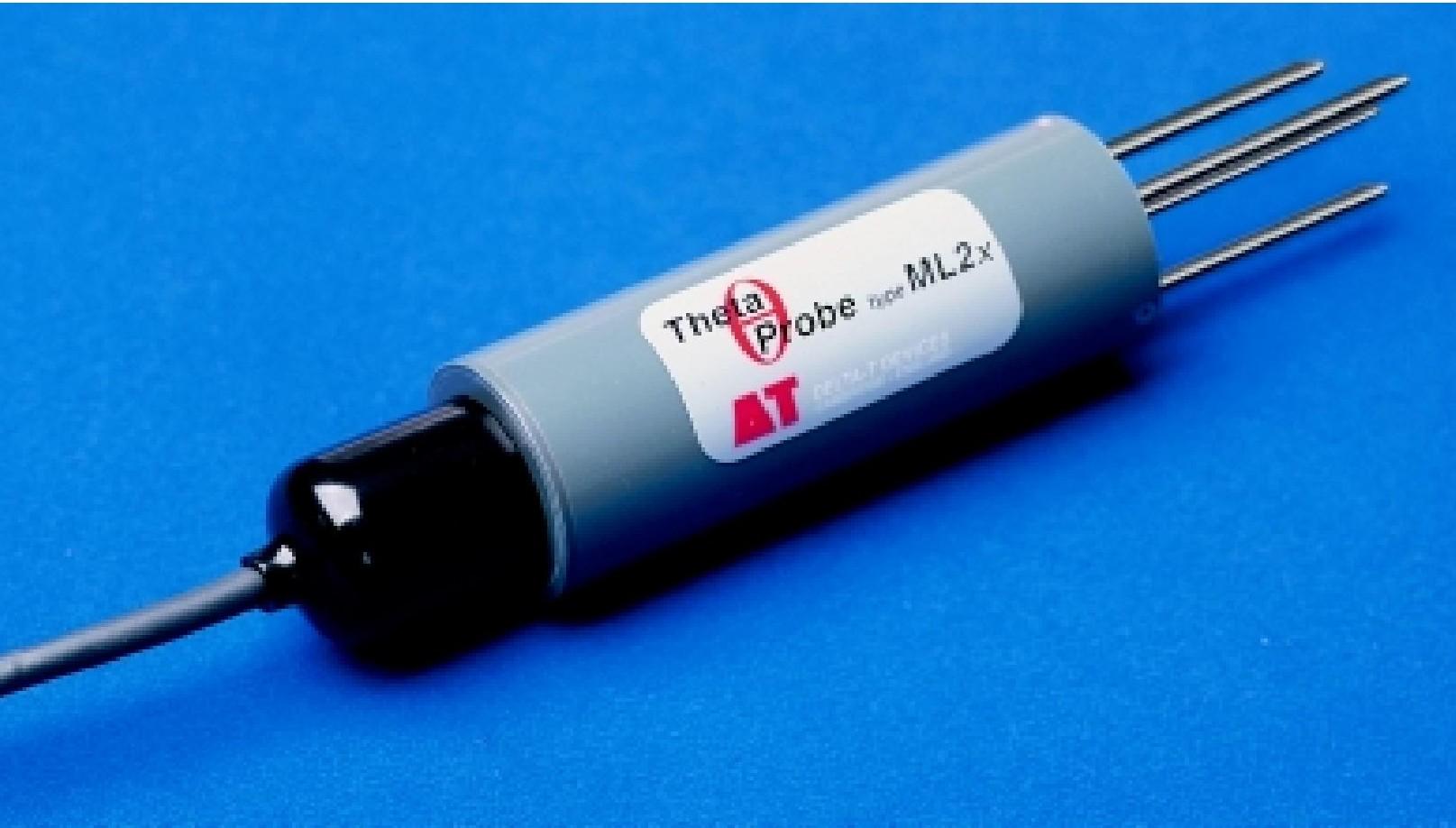
qv = (Vw/Vs) * 100%
where Vw is the volume of water and Vs is the total volume of the soil sample.
A value of 0% indicates that the soil is completely dry soil, and 100% is pure water.
Typically, for fully saturated soil, qv will be about 50%.
The probe consists of a waterproof housing, containing the electronics, with four stainless steel spikes attached to one end, which are inserted into the soil. A 100MHz sinusoidal signal is applied to the spikes, and changes in the impedance between them, due to changes in the dielectric constant of the soil, are detected. The probe then outputs an analogue voltage between 0 and 1 V DC, which is virtually proportional to the soil moisture content.
The precise relationship between soil moisture content and the square-root of e is dependent on the soil type, but after carrying out tests on the soil at Cardington, it was decided to use the manufacterers generalisied calibration coefficients for a mineral soil.
Further information on the ThetaProbes can be found on the Delta-T website: www.delta-t.co.uk